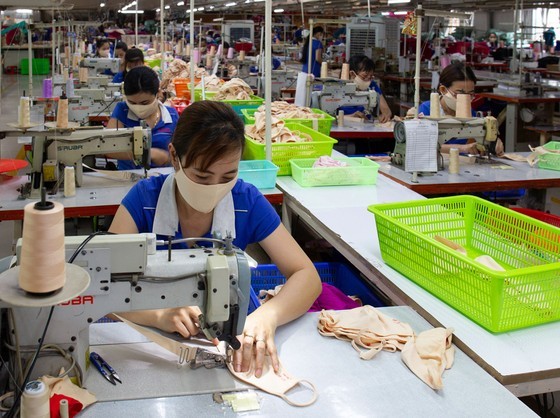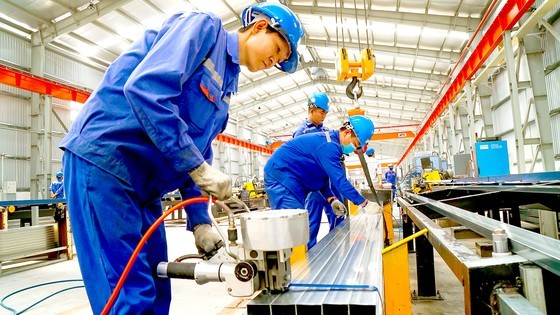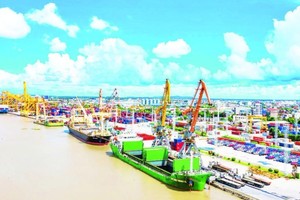 |
Workers at Nguyen Dung Textile Company in HCMC's District 12 |
That is expected to bring prosperity to production and business activities in the last quarter of the year.
With the country’s existing economic difficulties, credit growth has only reached 1/3 of the plan set by the banking industry for 2023 even though the third quarter of 2023 ended. Not only private commercial banks but also state-owned banks also have witnessed slow credit growth.
A Vietcombank leader said that from the beginning of the year until now, this bank's capital mobilization has been six times higher than the credit growth rate. He disclosed that not only domestic production and business credit but also foreign direct investment (FDI) business credit also decreased by more than 19 percent. Apart from that, real estate credit alone decreased sharply, in which personal loans to buy property decreased by up to 15 percent, he said.
Similarly, General Director of BIDV Le Ngoc Lam said that by the end of August 2023, BIDV's credit would only increase by 5.72 percent even though the yearly limit is up to 14 percent. Meanwhile, Agribank reported that its credit growth only reached 2.4 percent as of August 31 compared to the end of 2022 explaining for the economy's weak capital absorption capacity.
More people make deposits into their savings accounts but there has been a decrease in borrowers' demand for loans; therefore, the State Bank (SBV) has lately withdrawn VND100 trillion of uncirculated money out of the banking system through the issuance of bills. This move by the State Bank is assessed by experts as adjusting the short-term liquidity status in the system.
An expert from Maybank Securities Company analyzed the state bank’s move to attract money through treasury bills aims to ensure the goals of increasing interest rates in the inter-bank market as well as reducing exchange rate pressure but not causing liquidity disruption for the economy with the aim to push down the lending rates.
 |
Galvanized steel production at Ton Dong A Corporation, Dong An 2 Industrial Park, Binh Duong Province (Photo: SGGP) |
Leaders of some commercial banks said that interest rates are no longer a barrier to accessing credit because lending interest rates have dropped deeply. However, this statement is different from reality.
Deputy Director of the State Bank of Vietnam Ho Chi Minh City branch Nguyen Duc Lenh said that the Ho Chi Minh City financial and monetary policy consulting working group has just conducted a survey of the operations of a number of businesses in the city to find out how businesses and people access credit capital.
The results show that businesses and people have convenient access to credit capital with low-interest rates. Accordingly, lending interest rates have decreased, and short-term credits and corporate loan interest rates are at a common level of 7.5-8.5 percent per annum. This rate has been maintained for many years before the Covid-19 epidemic. However, many petroleum businesses in Ho Chi Minh City revealed that they are borrowing loans at interest rates of 10 percent to 11 percent per annum while social housing businesses said that they are also enduring interest rates of up to 13 percent to 14 percent a year.
Standing Deputy Governor of the State Bank Dao Minh Tu said that since the beginning of this year, the State Bank has proposed many major solutions to expand credit. With the application of solutions, credit is expected to achieve growth goals, remove difficulties for businesses, and boost the economy.
Hopefully in the last 3 months of the year, as usual, credit will increase rapidly when businesses need money for the year-end shopping season. The State Bank will take drastic measures with the companionship of localities to create favorable conditions for businesses to thrive.
























